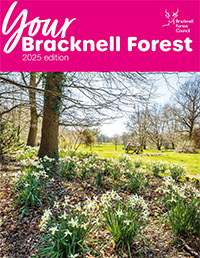
Bracknell Forest Council’s political leaders have unanimously asked central government to rethink the way it is proposing to spread funding across local authorities.
The council has recently responded to a consultation called the Fair Funding Review 2.0 on central government’s plans to change how money is distributed to local authorities from next year.
The proposals put local authorities considered to be ‘well off’ (like Bracknell Forest Council) in a difficult position – cutting funding in real terms for the next 3 years and not factoring in the rising cost and demand of social care and education.
Under the proposed plans, Bracknell Forest Council would face a funding gap of at least £14 million by 2028 to 2029, after allowing for council tax increases. To bridge this gap, service budgets would need to be cut by at least 10% over the next 3 years.
This is a best-case professional estimate as rising inflation and the extra demand for essential services, like social care and special educational needs and disabilities (SEND), could further increase the gap. This means residents would end up paying more council tax for fewer services.
A letter has been sent to the Minister for Local Government and English Devolution highlighting how the Fair Funding proposals would disadvantage Bracknell Forest Council and many other authorities that must provide social care and education services. The letter, signed by leaders of Bracknell Forest Council’s Labour, Conservative, Liberal Democrat and Green parties, states the funding review ‘does not seem to acknowledge the context that local authorities – particularly those with social care and education responsibilities – are currently operating in.’
Since 2021, the council has seen a £20 million increase in costs for children’s social care, adult social care and general fund education services, including home to school transport. There is no reason to think those underlying pressures won’t continue in the future.
The letter states that only with an adequately funded local government finance system, coupled with major reforms to the broken national social care and education systems, will local services be sustainable.
Cllr Kathryn Neil, Cabinet Member for Finance and Transformation, said:
“We fully acknowledge that any government has the right to review and adjust how it distributes money to local authorities. However, we have no choice but to challenge the Fair Funding Review proposals as this will leave us with a funding gap of at least £14 million over the next 3 years.
“Bracknell Forest Council has been managed well financially since its inception in 1998, and all administrations have acted responsibly and prudently to make sure we balance our budget while still providing the best possible services within the money we have.
“It is no secret that local government, as a sector, has been seriously underfunded for many, many years. The Fair Funding review disproportionately cuts money in the years ahead to areas like Bracknell Forest, which are seen as well off. We will be left to shoulder a large funding gap while struggling to pay for increasingly costly services – services that our residents need and rely on.
“The only way to close that gap would be to cut our services by at least 10% while asking our residents to pay more and more council tax. We do not believe this is fair and that is why we’re asking central government to rethink the scale and pace of the proposed changes to funding distribution.”
More information
As part of the consultation, the council confirmed it would use its reserves to cushion the funding shortfall. However, it was made it clear that these savings can only be used once and at least £23 million is already earmarked to support the Safety Valve programme (a central government project aimed at addressing financial challenges in providing high-quality services for children and young people with SEND).
In the letter, the council’s political leaders said they would welcome the opportunity to discuss this situation with the Minister for Local Government and English Devolution before details of the planned policy statement on local government finance are finalised. This is expected at the end of September and will confirm the Government’s approach to future funding, after considering the consultation feedback.
